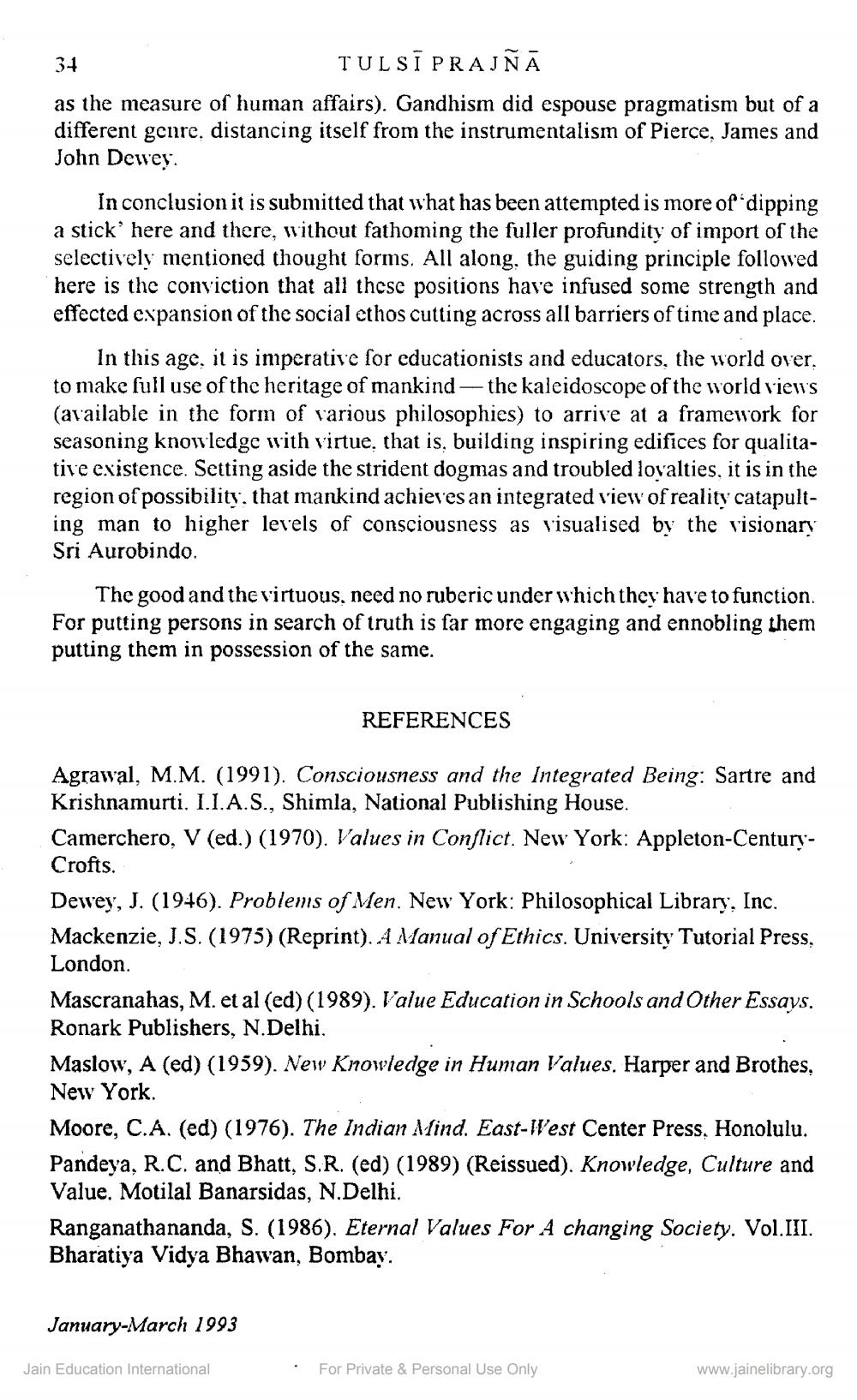________________
3+
TULSĪ PRAJÑA as the measure of human affairs). Gandhism did espouse pragmatism but of a different genre, distancing itself from the instrumentalism of Pierce, James and John Dewey.
In conclusion it is submitted that what has been attempted is more of dipping a stick' here and there, without fathoming the fuller profundity of import of the selectively mentioned thought forms. All along, the guiding principle followed here is the conviction that all these positions have infused some strength and effected expansion of the social ethos cutting across all barriers of time and place.
In this age, it is imperative for educationists and educators, the world over. to make full use of the heritage of mankind — the kaleidoscope of the world views (available in the form of various philosophies) to arrive at a framework for seasoning knowledge with virtue, that is, building inspiring edifices for qualitative existence. Setting aside the strident dogmas and troubled lovalties, it is in the region of possibility, that mankind achieves an integrated view of reality catapulting man to higher levels of consciousness as visualised by the visionary Sri Aurobindo.
The good and the virtuous, need no ruberic under which they have to function. For putting persons in search of truth is far more engaging and ennobling them putting them in possession of the same.
REFERENCES
Agrawal, M.M. (1991). Consciousness and the Integrated Being: Sartre and Krishnamurti. I.1.A.S., Shimla, National Publishing House. Camerchero, V (ed.) (1970). Values in Conflict. New York: Appleton-CenturyCrofts. Dewey, J. (1946). Problems of Men. New York: Philosophical Library, Inc. Mackenzie, J.S. (1975) (Reprint). 4 Manual of Ethics. University Tutorial Press, London Mascranahas, M. et al (ed) (1989). Value Education in Schools and Other Essays. Ronark Publishers, N.Delhi. Maslow, A (ed) (1959). New Knowledge in Human Values. Harper and Brothes, New York. Moore, C.A. (ed) (1976). The Indian Mind. East-West Center Press. Honolulu. Pandeya, R.C. and Bhatt, S.R. (ed) (1989) (Reissued). Knowledge, Culture and Value. Motilal Banarsidas, N.Delhi. Ranganathananda, S. (1986). Eternal Values For A changing Society. Vol.III. Bharatiya Vidya Bhawan, Bombay.
January March 1993
Jain Education International
For Private & Personal Use Only
www.jainelibrary.org




